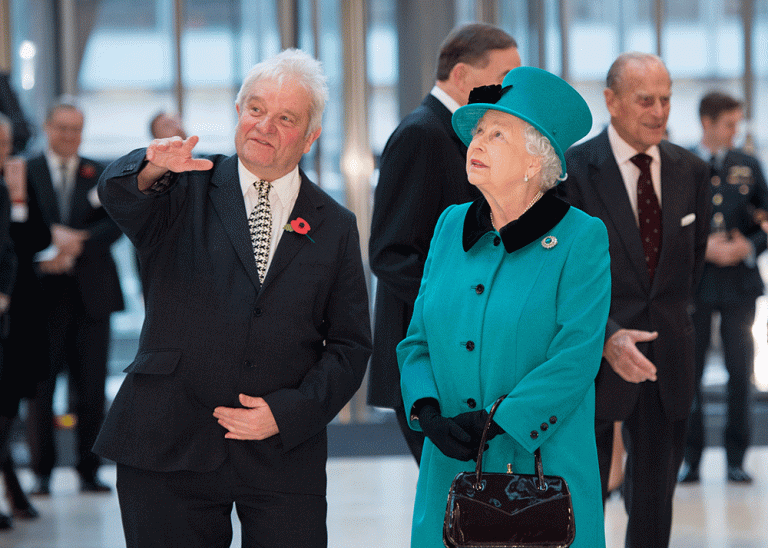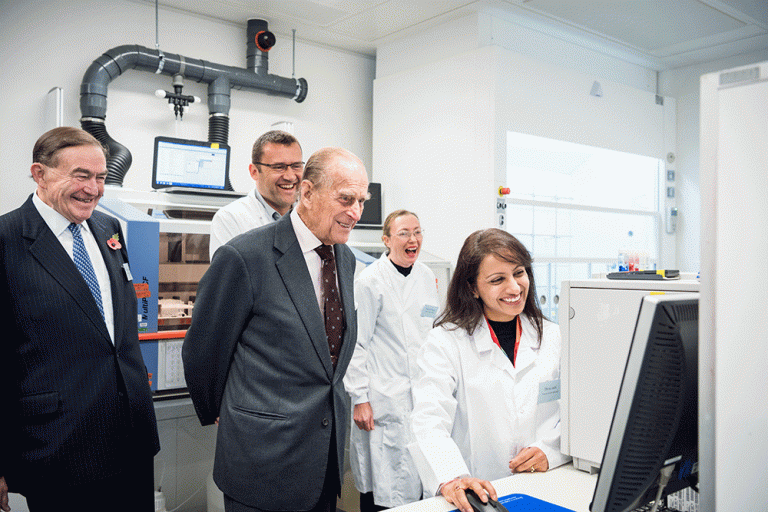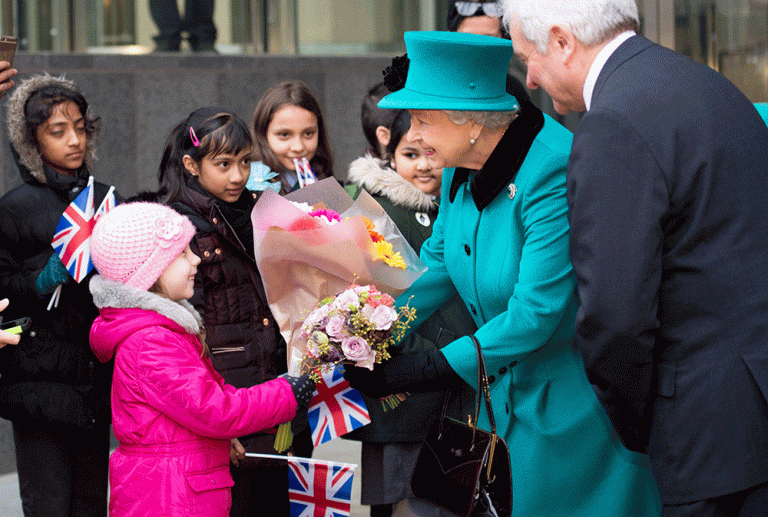Vice-Provost's View: UCL and the Francis Crick Institute
6 December 2016
Her Majesty the Queen and His Royal Highness the Duke of Edinburgh, accompanied by the Duke of York, officially opened the Francis Crick Institute this month.
 This is a £650 million investment, in which UCL is a
founding partner along with the Medical Research Council, Cancer Research UK,
the Wellcome Trust, King's College London (KCL) and Imperial College London.
This is a £650 million investment, in which UCL is a
founding partner along with the Medical Research Council, Cancer Research UK,
the Wellcome Trust, King's College London (KCL) and Imperial College London.
The Royal Party were shown examples of science at the Crick by UCL's Professor Charlie Swanton, who presented his groundbreaking work on immunotherapy for cancer, and Sir John Skehel (formerly of the National Institute for Medical Research), who explained the ongoing work on influenza.
Her Majesty and Prince Philip toured the state-of-the-art research facilities, including the peptide chemistry and advanced sequencing laboratories where the Queen was invited to start the sequencing of Sir Paul Nurse's genome.
The Crick is one of the largest and best equipped biomedical institutes in Europe. It occupies a site of approximately 3.6 acres next to the British Library and Turing Institute, within the vibrant knowledge quarter at King's Cross.
The scientific vision is to discover the biology underlying human health, improving the treatment, diagnosis and prevention of human disease and generating economic opportunities for the UK. The principles that guide the development of the Crick are set out in its strategy - "Discovery without boundaries" (pdf).
The Crick is a national institute that will play a major role in biomedical science in the UK. However, to reach its full potential, it will require access to, and provide a scientific home for, the very best scientists and clinician-scientists from countries around the world.
It will also need to utilise the strengths of its local partners. With our strengths in biomedicine, engineering, imaging, chemistry and the physical sciences, UCL has much to offer.

Despite its size (approximately 120 principal investigators), it is small compared with the >1,200 biomedical principal investigators within the UCL School of Life and Medical Sciences.
We have already made three joint strategic appointments: Professor Nick Luscombe - (Bioinformatics and Computational Biology Laboratory), Professor Akhilesh Reddy (Biological clocks and sleep) who holds the Sir Keith Peters UCL-Francis Crick Institute Chair of Experimental Neurology, and Professor Charlie Swanton (Translational Cancer Therapeutics Laboratory) together with Dr Nate Goehring, Dr Paola Scaffidi, and Dr Hasan Yardimci.
UCL staff have the opportunity to be seconded into the Francis Crick Institute, as well as host staff from the Crick within the UCL research environment. These attachments take the form of group secondments, satellites or sabbaticals.
After two application rounds, the following UCL researchers have secured places in the Crick: Professor Buzz Baum (microfabrication), Professor David Jones - (computer science), Dr Isabel Llorente-Garcia (physics of B cells), Professor Ewa Paluch (biophysics), Professor Lucia Sivilotti (ion channels), Professor Gyorgy Szabadkai (cancer metabolomics), Professor Jernej Ule (RNA biology), Dr Paola Bonfanti (stem cell biology), Dr Rickie Patani & Dr Sonia Gandhi (stem cell neurobiology), Professor John Christodoulou (biomolecular NMR spectroscopy), Dr Ricardo Henriques (super-resolution microscopy) and Professor Judith Breuer (molecular virology).
More information on the 2017 UCL-Crick attachments round will be at the UCL@Crick website in January.

We are also partnering with Crick principal investigators to host graduate students. The Crick has more than 200 students at various stages of their doctoral studies. It recruits a new cohort each year in collaboration with the three university partners.
The third cohort of PhD students has now started on the joint Crick-Higher Education Institute (HEI) PhD programme. From the 52 core Crick PhD students who started this year, a total of 30 have UCL co-supervisors.
We have also developed a Clinical Fellowship programme between the three NIHR Biomedical Research Centres at Imperial, Kings and UCL joint with the Crick to enable clinicians to advance their doctoral training in this superb environment.
UCL can also provide scientists at the Francis Crick Institute with access to facilities that allow them to translate their findings into real world treatments.
We have linked biomedical research centres (BRCs) at UCLH and the Royal Free, Great Ormond Street and Moorfields Hospitals. These three centres specialise in experimental medicine and 'first time in human studies' and have recently secured £167m for a further five years of funding (an uplift of £8m).
Moreover, UCL hosts the largest number of population cohorts in the UK (based in UCL Population Health Sciences and the UCL Institute of Education) along with well-characterised patient groups from the population of 6.3 million people (10% of the UK population) served by UCL Partners.
Professor Sir Keith Peters, who first suggested the Crick, has described the association of the Francis Crick Institute with its local university partners as the 'Greater Crick'.
Close partnership with UCL offers a real opportunity for the Crick to accelerate basic and translational research that will benefit patients and generate wealth for the UK economy.
Professor David Lomas
Vice-Provost (Health)
 Close
Close

